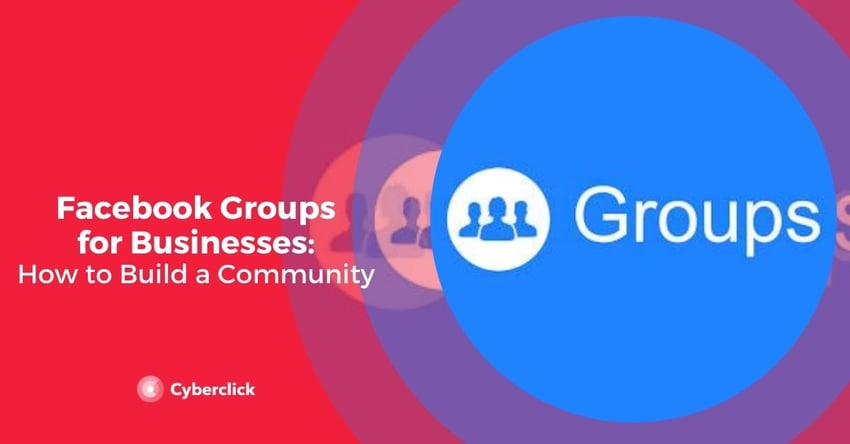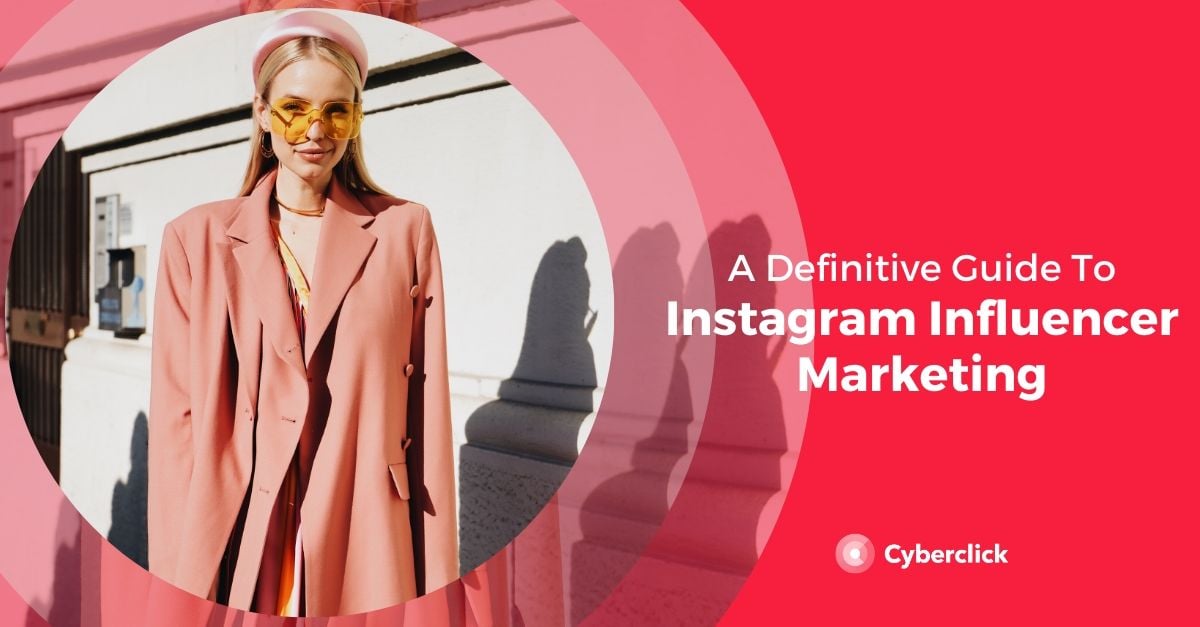If you’ve been on Facebook recently, then you’ll understand the power of Facebook groups. Facebook groups have brought about a new resurgence of use of the social media platform, despite finding itself in the spotlight due to new scandals and news reports.
If you think you’re noticing more Facebook groups on your newsfeed than before, it’s no coincidence. In 2016, Facebook began shifting towards creating conversations and engagement opportunities through Facebook Groups.
With Facebooks’ increased focus on Groups, now is the time to begin utilizing Facebook Groups into your own social media strategy. According to Facebook, in April 2019 there were over 400 million users in groups they defined as meaningful. This means your brand can definitely find its niche!
In this article, we’ll explain how to use Facebook Groups for businesses, how to create a group, and trips and tricks to help your groups thrive.

How to Use Facebook Groups for Business
Facebook groups can add value to a brand’s social media strategy by creating a sense of community, establishing yourself as an industry authority, and creating more opportunities for engagement with customers. Facebook groups should not be seen as another way to sell your product, rather they are opportunities to build your brand and its relationship with consumers.
Marketing via Facebook groups is similar to Reddit marketing. The focus should not be on self promotion, but rather creating value for members of the group. The group is not for you to post about how amazing your product or service is, but for others to rally over their mutual interest or love for your brand, product, service, or topics related to your products.
There are two ways businesses can participate in Facebook Groups, either by creating a group or joining an existing group. Each method has its pros and cons, but in general I recommend creating your own branded group that you can control and monitor. Being the group creator gives you the control in the group, and allows you to set the tone and rules. If you do decide to join a group as a brand, you will need to make sure you strictly follow the group’s rules in order to represent your brand well.
Facebook Pages vs Facebook Groups
Don’t confuse Facebook Pages and Groups. A Facebook page is the public facing profile page of your brand. This is where you can post status updates, images, videos, and live videos. They work similarly to a personal facebook page, expect Business pages are able to monitor analytics about how people engage with the page.
Facebook groups on the other hand are often private spaces where customers and users can come together over a central topic or commonality. They encourage conversations, sharing or personal, funny, and entertaining stories, or people asking for advice or help. Regarding a branded group, it allows users to connect over their love or use of a product and get advice or tips from other users.
Content wise, a Facebook page is more suited for TOFU (top of the funnel) content, while a Facebook group does better with MOFU (middle of the funnel) or BOFU (bottom of the funnel) content. I recommend you have both for your business.
Types of Facebook Groups
When creating a Facebook group, there are three different types of groups you can choose from: public, closed, and secret.
A public group is simply a group that anyone on the platform can find, join, and see the posts. Public groups are open for anyone on Facebook to join, whether they are interested in your product or not (or whether they’re even a real person!) For branded Facebook groups, public groups are typically not the best option.
Closed groups are more private than public groups because members must request to join and the group’s posts are private to outsiders. Facebook users are able to find your group on the app, but they won’t be able to see the group’s contents or members unless they are let in by a group administrator. This is often the most popular option for businesses.
Secret groups work similarly to closed groups, except they are completely hidden to non-members. This means no one can search for the group on Facebook, and only members can see that the group exists and its contents. The only way people can join is through a direct invitation.
Business Facebook Group Ideas
Facebook groups bring people together around one central topic. For brands, this can be a group about your specific product or service, customer service topics, or community building.
There is quite literally a group for everything nowadays. As a brand participating in a Facebook group, you can position your brand as helpful, caring, and able to engage with your customers on a more personal level - If done right. Engagement can go very wrong if you are too spammy, too controlling of the conversation, and only promoting yourself and not actually encouraging real conversations and connection. Let’s review a few different business Facebook group ideas and how you can successfully run your group:
- Customer Support: In a customer support group, customers can post their questions or issues to the group about your product or services. Customers can either help each other, or directly ask you, the business, their questions. This format allows you to directly interact with your customers, showing your dedication to their needs, while also helping other users who may run into the same issue.
- Community Building: This is perhaps the most common way to use a Facebook group for business. Customers can rally behind the love of your product or service, connect with others, build up your brand loyalty, and create goodwill around your brand. Community building can look very different, depending on the mission of the brand and their specific product or service. For example, a subscription meal kit service can have a group where users can share pictures and videos of the meals they’ve created using the service, as well as share recipe inspiration or start conversations about cooking. This provides a space for users to connect with each other, through their love for your product.
- Social Listening: If you decide to create a group centered around your specific product or service, or more broadly your industry or sector, you can use the group for social listening purposes. This will allow you to stay on the pulse of what your customers like about your product and what they want. It also helps you keep up with industry trends and consumer interests.
How to Grow Engagement on Facebook Groups
1. Find the Line
Business Facebook groups must find the fine line between facilitating conversations, but not being overbearing. This should be a space for fans to connect, and if your presence is too “Big Brother” they may go off and make their own space. In general, try to find the balance between encouraging conversations while also allowing members to create their own posts and grow the group organically.
2. Use Your Analytics
Group admins are able to access analytics and metrics that give them insight into behaviors and trends occurring within the group. You can track how many new members the group has, the best hours to post, engagement, and member demographics. Just like with any other social media strategy, monitor these metrics to understand how to better fuel engagement within the group.
3. Post Different Content in Your Groups
As I mentioned earlier, group content is more MOFU and BOFU. Because of this, ensure you are posting different content in your group and Facebook page. Likely, your members are already following your page and will find the double content redundant. In the group, you can post more “personal” content, like AMAs, behind the scenes/exclusive contents, Q&As, live interviews, etc. Your group members are your brand's biggest supporters, so try to connect.
4. Keep The Trolls Out
Facebook allows group moderators to set up a questionnaire that members must answer before they can enter into a Closed or Secret group. Use this to ensure people entering the group are real people and not trolls. Also, be sure to set group rules that members must read before joining and follow.
5. Add Moderators
Any community manager knows that Facebook groups can be a lot of work! Consider adding moderators to the group who can help ensure members are following the guidelines and everything is running smoothly. Facebook allows moderators to have certain powers designated to them by the group creator. Consider adding trust member of your team, or active trustworthy members of the group.
6. Promote Your Group
Don’t forget to promote your group on all of your other social media platforms as well! This is a great way to grow the group and create community with a larger number of customers.
How to Create a Business Facebook Group
Let’s review how to create a business Facebook group, step by step:
-
On the desktop version, find and click the Group button on the left hand side of the site, located under Explore.
-
Click Create Group
-
Fill out the information needed. Choose the name, the people you want to add (you’ll need to add a least one person when creating the group, and the group privacy (public, closed, or secret.)
-
Once the group is created, go to the group page then go to the Group Settings by clicking on the three dots below your cover photo and click “Edit Group Settings.” This works similarly to how you would edit your own page.
-
From there you can add a group description, cover photo, group tags, a location, and a group type. You can also create a custom URL, which will make it easier for users to remember when you start to promote the group.
-
Once you’ve set it up, you’re all done! Now, you need members. Don’t forget to invite members of your team to join the group and promote the group on all of your social accounts. You can also link the group to your Business Page.
Shanon es una diseñadora multidisciplinaria especializada en la creación de diversos activos digitales, como campañas digitales, videos o ebooks. Con experiencia en marketing digital y inbound marketing, Shanon destaca en el desarrollo de landing pages y webs para clientes usando HubSpot.
Front-End Developer & Graphic Designer. Shanon is a multidisciplinary designer specialized in creating diverse digital assets, including digital ads, videos, ebooks, and more. With a background in digital and inbound marketing, Shanon excels in developing impactful landing and web pages for clients using HubSpot.



.jpg)


Leave your comment and join the conversation